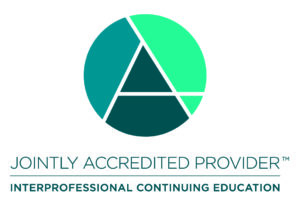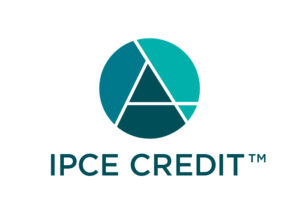Praxis Continuing Education & Training
ACT Immersion with Steven Hayes, PhD
24 CE credits available
Please read the complete course information below prior to registering.
Target Audience:
This course is for mental health professionals and students with a beginner-advanced background in this area. This includes counselors, nurses, physicians, psychologists, social workers, behavior analysts, and anyone looking to learn ACT to use with clients. It’s relevant to those with no ACT experience, and those who’ve been using ACT for years as they can learn something new with regards to using ACT as a process-based therapy.
Schedule:
This activity offers 10 different modules as outlined below:
Module 1 - Introducing ACT (133 minutes)
Module 2 - Core Yearnings (160 minutes)
Module 3 - Pivots (151 minutes)
Module 4 - Transcendent Self (162 minutes)
Module 5 - Defusion (68 minutes)
Module 6 - Acceptance (159 minutes)
Module 7 - Present Moment (187 minutes)
Module 8 - Values (225 minutes)
Module 9 - Committed Action (110 minutes)
Module 10 - Case Conceptualization (86 minutes)
Overall Objectives:
At the conclusion of this course, participants will be able to:
1. Differentiate between a process-based therapy approach and a system of protocols and syndromes
2. Distinguish between flexibility and inflexibility processes
3. Identify the ways that ACT work enables a clinician to recognize a shift in a client
4. Identify the processes that need to be targeted in ACT work
5. Define “truth” in the context of Functional Contextualism
6. Describe the 6 core human yearnings and discuss the traits of each core yearning
7. Explain how attempts to meet core yearnings can trap a client in psychological inflexibility
8. Define the pivot concept and explain how it is used in ACT work
9. Identify the six pivots used in ACT work and specify their meanings and uses
10. Review the ACT Hexaflex within an evolutionary science perspective
11. Describe the steps to forming a treatment agreement with a client to begin ACT work
12. Explain the basis of how consciousness forms
13. Identify the signs in a client of psychological inflexibility and flexibility in relation to the self
14. Identify strategies for speaking with clients in a way that effectively engages them to work on the transcendent self flexibility process
15. Define cognitive fusion and defusion and explain why it’s more effective to defuse from unhelpful thoughts than try to eradicate or replace them
16. Identify features of a therapeutic agreement with a client to do defusion work
17. Identify the signs in a client of psychological inflexibility and flexibility in relation to defusion
18. Identify ways to safely and effectively do ACT exposure work with clients
19. Describe the signs in a client of psychological inflexibility and flexibility in relation to acceptance
20. Identify strategies for speaking with clients in a way that effectively engages them to work on the acceptance flexibility process
21. Describe why and how clients' attention is drawn away from the present moment
22. Identify the signs in a client of psychological inflexibility and flexibility in relation to present moment awareness
23. Identify strategies for speaking with clients in a way that effectively engages them to work on the psychological flexibility process of present moment awareness
24. Define what "values" are in the context of ACT work and explain the characteristics of values and describe why values are critical to a client achieving beneficial long-term outcomes
25. Identify the signs in a client of psychological inflexibility and flexibility in relation to values
26. Identify strategies for speaking with clients in a way that effectively engages them to work on the psychological flexibility process of values
27. Define what “committed action” is and explain its relationship with values
28. Define SMART goals and bold goals, and their roles in committed action
29. Describe strategies to help a client recommit when they have slipped
30. Identify the signs in a client of psychological inflexibility and flexibility in relation to committed action
31. Identify strategies for speaking with clients in a way that effectively engages them to work on the psychological flexibility process of committed action
32. Identify whether statements in a clinical setting can be considered adequate from a functional contextualist viewpoint
33. Create a network diagram and identify self-amplifying processes in a client
34. Make a case conceptualization using a matrix
35. Assess, plan treatment, and track a client using the turtle model
Grievance Procedures for CE Activities
Should a participant in the course be unsatisfied with the course, the participant should immediately contact our customer support team to file a grievance. Within five days, a customer support team member will contact the participant by email and/or phone and attempt to resolve the issue.
We will investigate and assess the issue from the perspective of the participant and every effort will be made to resolve the issue. If the issue is not resolved to the satisfaction of the participant, the participant will be offered a refund per the Refund and Cancellation Policy guidelines.
To file a grievance, please contact us at courses@praxiscet.com.
ADA Accommodations
To request accommodations for disabilities, please contact Praxis Continuing Education at courses@praxiscet.com.
Contact Information:
The ACT Immersion team can be contacted at courses@praxiscet.com
Praxis Continuing Education
5674 Shattuck Avenue
Oakland, CA 94609 USA
CE Information:
This non-live internet activity is sponsored by Praxis Continuing Education and Training and is approved for 24 CE Hours by the organizations listed below. Praxis CET maintains responsibility for the program with the CE approvals outlined below.

Joint Accreditation: In support of improving patient care, Praxis Continuing Education and Training, Inc. is jointly accredited by the Accreditation Council for Continuing Medical Education (ACCME), the Accreditation Council for Pharmacy Education (ACPE), and the American Nurses Credentialing Center (ANCC), to provide continuing education for the healthcare team.

IPCE: This activity was planned by and for the healthcare team, and learners will receive 24 Interprofessional Continuing Education (IPCE) credit for learning and change.
Nursing: Praxis Continuing Education and Training, Inc. designates this activity for a maximum of 24 ANCC contact hours.
Physicians: Praxis Continuing Education and Training, Inc. designates this enduring material activity for a maximum of 24 AMA PRA Category 1 Credits™. Physicians should claim only the credit commensurate with the extent of their participation in the activity.

Psychologists: Continuing Education (CE) credits for psychologists are provided through the co-sponsorship of the American Psychological Association (APA) Office of Continuing Education in Psychology (CEP). The APA CEP Office maintains responsibility for the content of the programs.
Social Workers: As a Jointly Accredited Organization, Praxis Continuing Education and Training, Inc. is approved to offer social work continuing education by the Association of Social Work Boards (ASWB) Approved Continuing Education (ACE) program. Organizations, not individual courses, are approved under this program. Regulatory boards are the final authority on courses accepted for continuing education credit. Social workers completing this course receive 24 clinical continuing education credits.
Drug and Alcohol Counselors: This course has been approved by Praxis Continuing Education and Training, Inc. as a NAADAC Approved Education Provider, for 24 CE hours. NAADAC Provider #165310, Praxis Continuing Education and Training, Inc. is responsible for all aspects of its programming.

National Counselors: Praxis Continuing Education and Training, Inc. has been approved by NBCC as an Approved Continuing Education Provider, ACEP No. 6759. Programs that do not qualify for NBCC credit are clearly identified. Praxis Continuing Education and Training, Inc. is solely responsible for all aspects of the programs.
Behavior Analysts: Praxis CET is an approved BACB ACE Provider # OP-17-2718.
NY Counselors: Praxis Continuing Education and Training, Inc. is recognized by the New York State Education Department's State Board for Mental Health Practitioners as an approved provider of continuing education for licensed mental health counselors #MHC-0198.
NY Social Workers: Praxis Continuing Education and Training, Inc. is recognized by the New York State Education Department's State Board for Social Work as an approved provider of continuing education for licensed social workers #SW-0467.
NY Psychologists: Praxis Continuing Education and Training, Inc. is recognized by the New York State Education Department's State Board for Psychology as an approved provider of continuing education for licensed psychologists #PSY-0002.
NOTE: Many state boards accept offerings accredited by national or other state organizations. If your state is not listed, please check with your professional licensing board to determine whether the accreditations listed are accepted.
CE Course Launch Date: 6/2019
Expiration Date/Next scheduled review date: 6/2025
Disclosure of Relevant Financial Relationships
Praxis Continuing Education and Training is responsible for the content, quality and scientific integrity of all CE activities certified for credit. When an educational activity is offered for medical (CME), Nursing (ANCC) and/or Psychology (APA) continuing education credit, participants must be informed as to the source, amount, nature, and disposition of any funding used to support the activity, whether in the form of educational grants, cash contributions, or in-kind contributions. Individuals in a position to influence course content must also disclose whether they have one or more relevant financial relationships with ineligible companies.
We define ineligible companies as those whose primary business is producing, marketing, selling, re-selling, or distributing healthcare products used by or on patients. There is no minimum financial threshold; individuals must disclose all financial relationships, regardless of the amount, with ineligible companies. We ask that discloses are made regardless of whether the individual views the financial relationships as relevant to the education. For more information on the Standards for Integrity and Independence in Accredited Continuing Education, please visit accme.org/standards.
All those in a position to control the content of an education activity are asked to disclose any relevant financial relationships they have with any ineligible companies.
There is no commercial support for this activity.
None of the planners or presenters for this educational activity have relevant financial relationship(s) to disclose with ineligible companies whose primary business is producing, marketing, selling, re-selling, or distributing healthcare products used by or on patients.
How to Obtain Your CE Certificate:
After completing the course, please follow these steps to access your course evaluation, post-test (when applicable), and CE certificate. To receive credit, you must complete the course in full, pass the post-test with an average cumulative score of 80% or higher, and complete the course evaluation. No partial credit will be awarded. Please read through all of the instructions below before proceeding.
- Once you have completed all the modules and have taken the post-test for each module, go to the “Evaluation” tab on the course menu.
- If you have passed the post-tests with an average cumulative score of 80% or higher, the course feedback evaluation will be made available to you on the Evaluation page. You will be allowed to retake each post-test only once if you do not pass with an 80% or higher average.
- After submitting the feedback evaluation, a button will appear that will allow you to download your certificate.
We encourage members to submit the feedback evaluation within 6 months of course completion to earn their CE certificate.
Technical Requirements:
In order to complete this course, attendees will need:
- A computer with a monitor, keyboard, and a mouse or a mobile device/tablet
- Speakers/headphones: either built‐in to your computer/device or external (plugged into your computer)
- An internet connection, either wired or wireless. A minimum connection speed of 3 megabits is required to stream clear, standard definition video.
- The course is supported on most up-to-date internet browsers (Google Chrome, Safari, Firefox, Microsoft Edge, Brave, etc.)
- A PDF viewer such as Adobe Acrobat Reader
- An email address
- [Optional] A mixed media player (such as iTunes/Windows Media Player) to listen to downloadable audio exercises. These are also available within the members area so this is not a strict requirement.
- [Optional] A printer or access to a printer (to print any of the PDFs, if desired)
- [Optional] A Facebook account for access to the ACT Immersion community group
References:
A complete list of course references can be found here, but here is a selection of current references that provide a summary of the evidence base for this course.
There are over 310 randomized trials of ACT (for a list see bit.ly/ACTRCTs) and approximately 3,000 studies on its underlying model, methods, and mechanisms. This enormous body of evidence has been summarized in over 50 meta-analyses in the scientific literature (for a list see bit.ly/ACTmetas).
A good recent overall meta-analysis covering the impact of the methods taught in this course on mental health problems is:
A-Tjak, J. G. L., Davis, M. L., Morina, N., Powers, M. B., Smits, J. A. J., & Emmelkamp P. M. G. (2015). A meta-analysis of the efficacy of acceptance and commitment therapy for clinically relevant mental and physical health problems. Psychotherapy and Psychosomatics, 84(30), 30–36. DOI: 10.1159/000365764
The importance of a process-based approach has been laid out in:
Hayes, S. C., Hofmann, S. G., Stanton, C. E., Carpenter, J. K., Sanford, B. T., Curtiss, J. E., & Ciarrochi, J. (2019). The role of the individual in the coming era of process-based therapy. Behaviour Research and Therapy, 117, 40-53. Doi: 10.1016/j.brat.2018.10.005 and in Hofmann, S. G. & Hayes, S. C. (2019). The future of intervention science: Process-based therapy. Clinical Psychological Science, 7(1), 37–50. DOI: 10.1177/2167702618772296
And a recent summary of the Psychological Flexibility Model and ACT is presented in:
Hayes, S. C., Levin, M., Vilardaga, J., Villatte, J., & Pistorello, J. (2013). Acceptance and Commitment Therapy and contextual behavioral science: Examining the progress of a distinctive model of behavioral and cognitive therapy. Behavior Therapy, 44, 180–198. DOI: 10.1016/j.beth.2009.08.002
The course presenter has published over 45 books and 625 scientific articles. Recent peer-reviewed empirical studies conducted by Dr. Hayes that inform the present course (five of several dozen over the last six years) include:
Long, D. M. & Hayes, S. C. (2018). Development of an ACT prototype for therapeutic skill assessment. Journal of Contextual Behavioral Science, 9, 63–71. DOI: 10.1016/j.jcbs.2018.06.008
Monestès, J. L., Karekla, M., Jacobs, N., Michaelides, M., Hooper, N., Kleen, M., Ruiz, F. J., Miselli, G., Presti, G., Luciano, C., Villatte, M., Bond, F., Kishita, N., & Hayes, S. C. (2018). Experiential avoidance as a common psychological process in European cultures. European Journal of Psychological Assessment, 34, 247–257. DOI: 10.1027/1015-5759/a000327
Villatte, J. L., Vilardaga, R., Villatte, M., Vilardaga, J. C. P., Atkins, D. A., & Hayes, S. C. (2016). Acceptance and Commitment Therapy modules: Differential impact on treatment processes and outcomes. Behaviour Research & Therapy, 77, 52–61. DOI:10.1016/j.brat.2015.12.001
Livheim, F., Hayes, L., Ghaderi, A. Magnusdottir, T., Högfeldt, A., Rowse, J., Turner, S., Hayes, S. C., & Tengström, A. (2015). The effectiveness of Acceptance and Commitment Therapy for adolescent mental health: Swedish and Australian pilot outcomes. Journal of Child and Family Studies, 24(4), 1016–1030. DOI: 10.1007/s10826-014-9912-9
Twohig, M. P., Plumb Vilardaga, J. C., Levin M. E., & Hayes, S. C. (2015). Changes in psychological flexibility during acceptance and commitment therapy for obsessive-compulsive disorder. Journal of Contextual Behavioral Science, 4, 196–202. DOI:10.1016/j.jcbs.2015.07.001